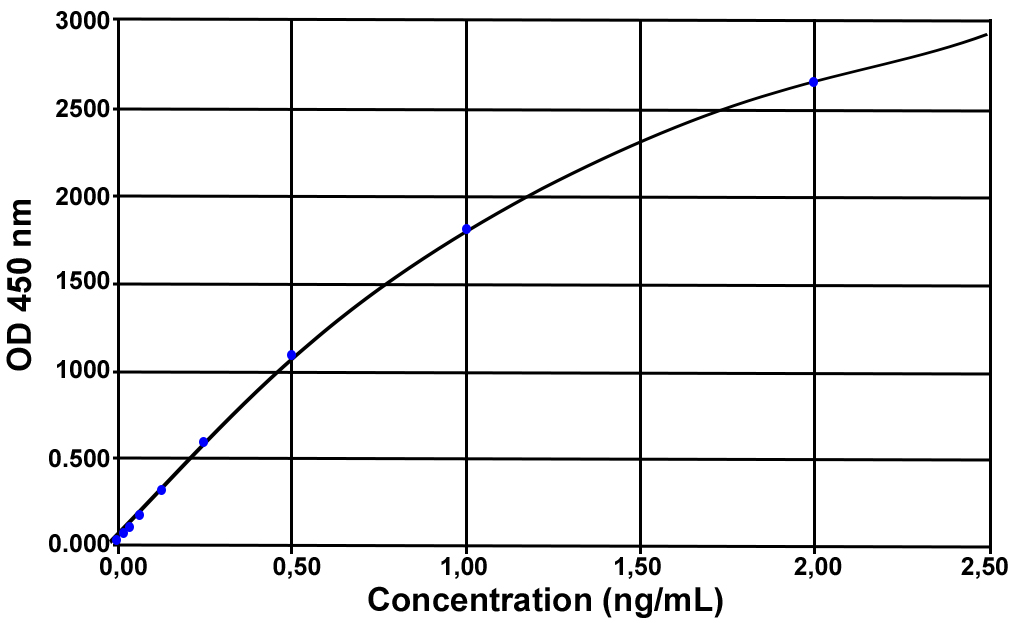Territorial Availability: Available worldwide directly through Bertin or your local distributor
Technical Warning: Check the Additional Items Required section of this kit booklet to verify if UltraPure Water (Milli-Q or equivalent) is needed for this assay
- Synonyms
- Cachectin
- Tumor Necrosis Factor-alpha
- Correlated keywords
- ELISA
- EIA
- Interleukin-1
- Interleukin-6
- Cytokine
- Inflammatory
- Chemokines
- Swine
- Porc
- Product Overview:
Enzyme ImmunoAssay (EIA) is a technique to detect and quantify antigens (proteins, hormones…) or antibodies in samples. It relies on the ability of an antibody to bind a specific antigen. Either the antibody or the antigen is labelled with an enzyme whose substrate is a chromogen or a fluorogen converted in a measurable product (color or fluorescence).|Enzyme-linked Immunosorbent Assay (ELISA) is a type of EIA using a solid phase (ex: microtiter plate) coated with an antigen immobilizing the molecule to detect. Over the time, scientists have extended the term ELISA to EIAs using an antibody coating the solid phase. That explains why our EIA kits using coated antibodies are also called ELISA kits.|Known as cachectin, the TNF-alpha (Tumor Necrosis Factor-alpha) is a glycoprotein of 156 amino acids produced from a precursor processed by action of a metalloprotease. Isolated for the first time in 1975 by Carswell, it’s a cytokine of the innate immunity.|Interleukin-1 or bacterial endotoxins stimulate the production of TNF-alpha by immune cells (activated macrophages, NK cells, monocytes) and non-immune cells (keratinocytes, vascular smooth muscle cells, and granulosa lutein cells).|The main function of the TNF-alpha is to act as an immunomodulator and as a mediator of infl ammatory responses in the phenomena of host resistance to infection. It allows neutrophils and macrophages recruitment to infectious sites by stimulating the production of adhesion molecules and chemokines (chemotactic cytokines) by endothelial cells. TNFalpha also acts on the hypothalamus to trigger the fever.|Over-production of TNF-alpha has been implicated in a number of pathological conditions including cachexia, septic shock, and autoimmune disorders.





